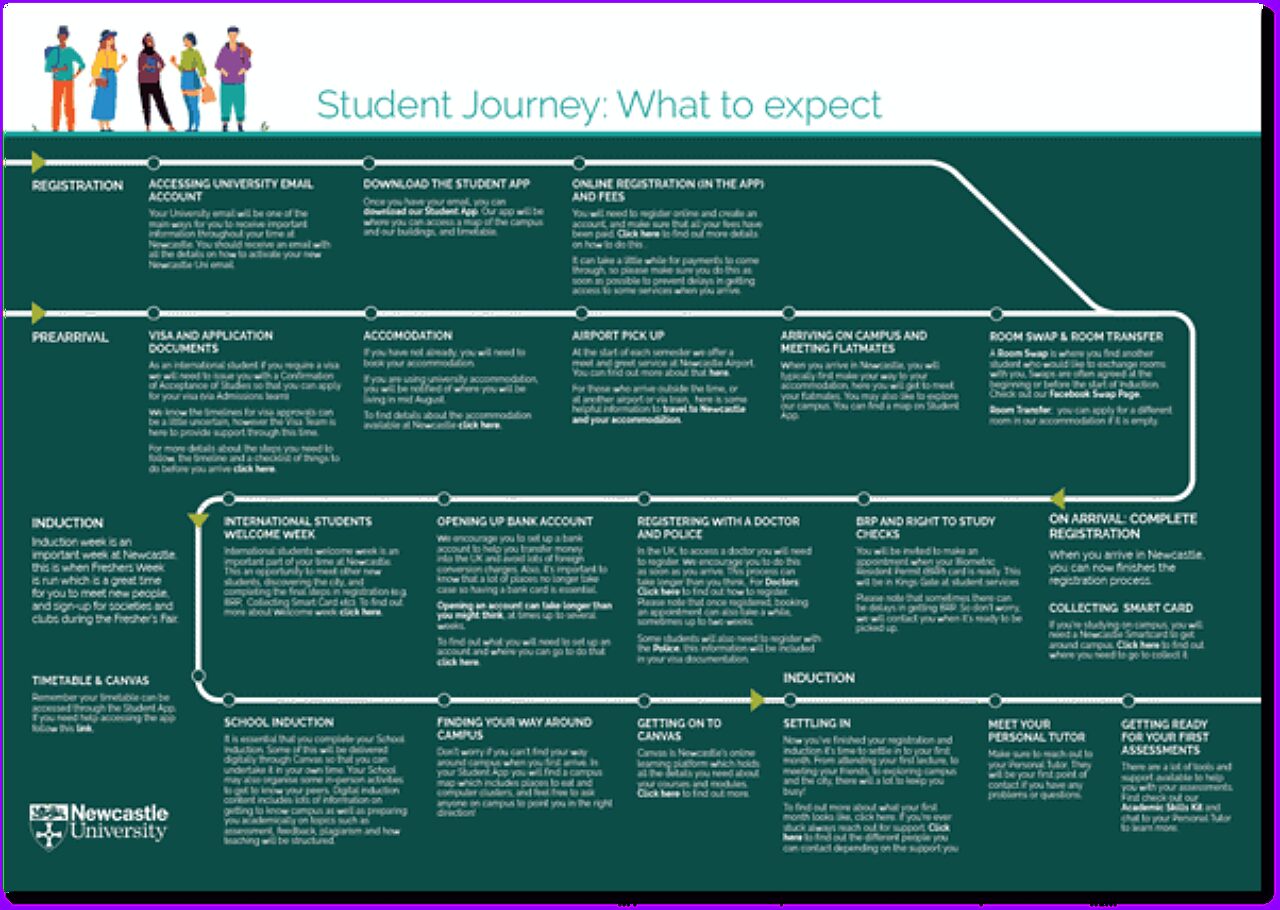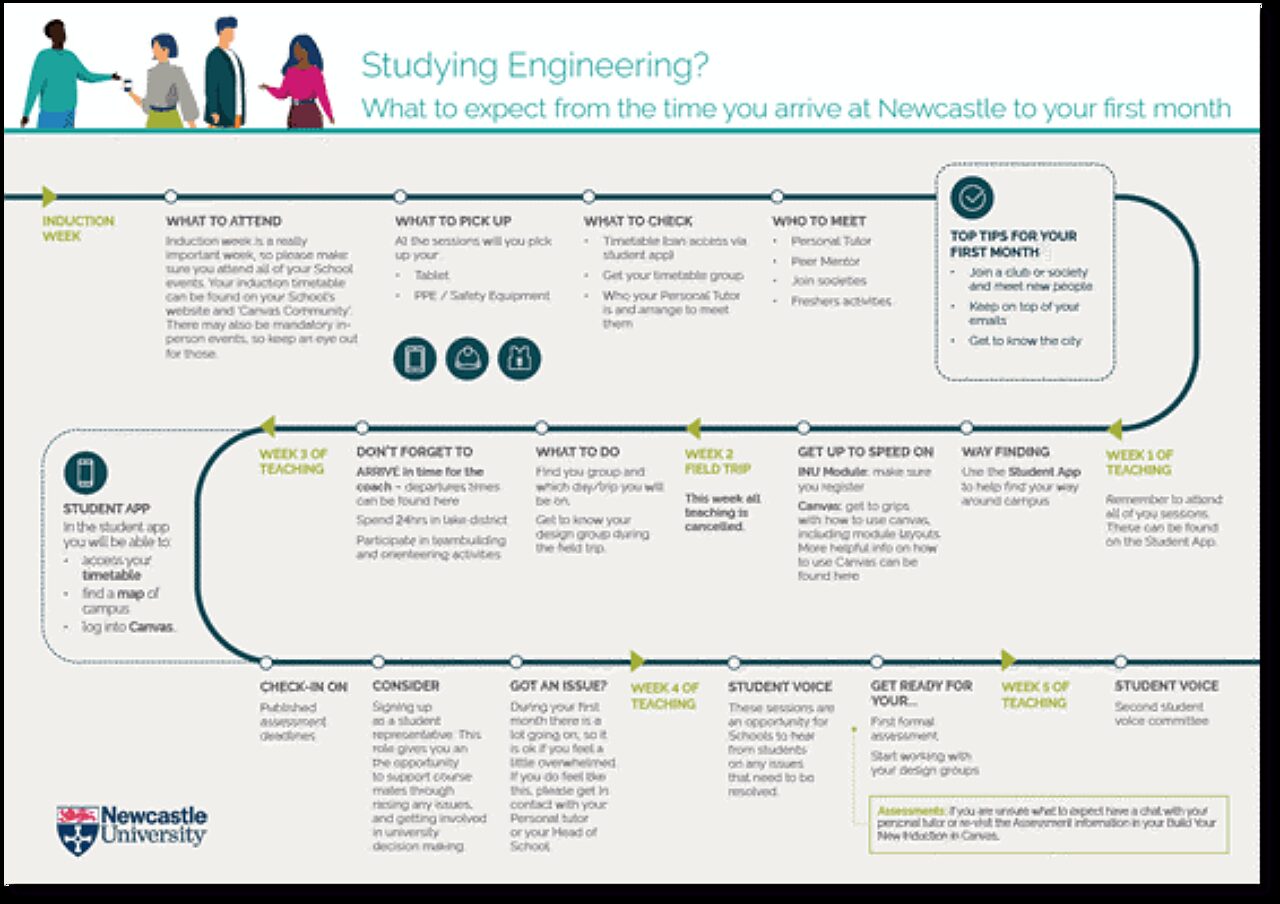Newcastle University is a world-leading research-intensive Russell Group university.
The university sought to imagine a new future
Newcastle University saw that COVID-19 operational challenges endangered longer-term transformational thinking, and that new implementation approaches might be needed given the inertia often faced in driving change.
It convened a Futures Groups and partnered with us to maximise its value, including through trialling agile methods to design, develop and deliver ideas rapidly. Domains included improving student experience, incorporating the student voice into university decision-making and improving assessment and feedback practices.
We tailored sprints, informed by agile principles and design thinking
We supported Newcastle to implement ideas generated through the Futures work by piloting three two-week sprints and building capabilities in working with this method. Newcastle wanted to trial this method to show how an iterative approach, focused on small cross-functional project teams collaborating with staff and students, can rapidly design, develop and deliver solutions, change and improvement.
We worked with professional services and academics across Newcastle to refine the topics of each sprint and tailor the agile method to suit needs and availability. For each sprint, we designed and facilitated the working sessions, engaged with students and staff, brought in inspirations from our work with universities around the globe and supported development of the final outputs.
Each sprint brought together staff and students to rapidly drive change
Across the sprints more than 150 staff and more than 250 students were engaged via pop-up consultations held in hotspots across the campus, as well as social media, focus groups and interviews.
Based on what we heard, we produced minimum viable products to address issues raised or to deliver new ideas. These products included student journey maps, including pain points, opportunities and solutions; a student voice matrix; a ‘how to’ guide for staff on engaging students; a new Canvas (online communications) module for students on the topic of feedback; and a discussion paper for academics on the future of feedback and assessment.
The tailored sprints drove improvement
Newcastle is using the solutions developed to make changes. The student journey maps are informing decisions on how Newcastle can enhance its student experience straight away. Changes are underway to amplify student voice and to provide guidance to staff on incorporating student voice into their work. A Canvas module has been rolled out to students on assessment feedback.




This eagerness of teams and the university to change quickly shows the value of bringing together people to focus their attention, energy and expertise on rapidly solving important issues and driving real change. This can bring some surprises – many participants said they were impressed by how much could be achieved in just two weeks.
In this project, staff developed capabilities through training and experience. They quickly learnt an iterative approach that was genuine co-creation with students and the value of designing solutions with the user at the heart. Staff gained experience working in cross-functional teams and built confidence developing rapid solutions and iterating them after implementation.
This approach challenged culture mindsets. As one staff member said: “The culture in the institution does not always facilitate change or improvements in a fast-paced way. I think the sprints allowed us to challenge this. Seeing this kind of determination to ‘get things done’ would be brilliant.”
Staff are now considering how they can run sprints to solve issues or implement great idea discovered during the earlier sprint. The next sprint for one area has already kicked off.
What you can learn from Newcastle
Tailored agile sprints that produce quality outputs within two weeks can be delivered in a university context.
Agile principles can empower staff to drive change and embed new mindsets and behaviours.
Sprints can be used for targeted interventions that cumulatively drive change over time, rather than big transformation projects.
